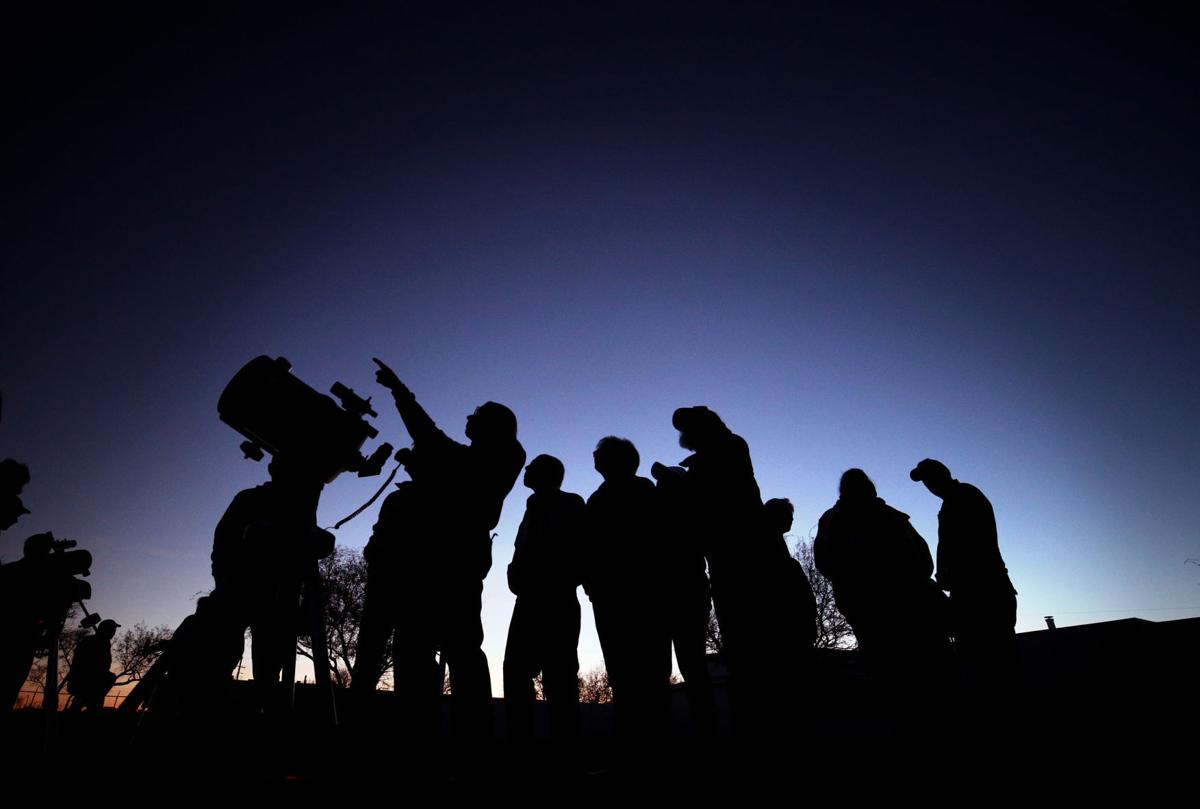Question: I have been in a small rural ĂŰÁÄÖ±˛Ą town for many years. It’s growing and I’m afraid we are losing our nighttime view of the sky. What can I do to ensure that it doesn’t disappear altogether?
Answer: That is a legitimate concern. The night sky is just plain good for the soul. Scientists, too, are concerned about too much light at night and the damage it can do to both humans and animals. A good place to start for guidance is the International Dark-Sky Association, or IDA. They have some good tips for homeowners to minimize the light they use at night. The association reminds us that lighting should only be on when needed and to only light the area required. In addition, it should be no brighter than needed, minimize blue lights, and use fully shielded lights. For Example:
- Floodlights — Aim them downward as much as possible. When using them for motion sensors aim them at spaces near the house. They don’t need to detect movement from passersby or blowing branches.
- Walkway lights — Replace fixtures with fully shielded styles. There is less light but with the absence of glare you will be able to see better in most instances.
- Porch/garage lights — Use fixtures that aim the light downward and use smaller bulbs with an amber tone to reduce glare.
- Bulb types — Light choices have come a long way. Choose bulbs that are lower wattage and avoid white or blue bulbs choosing warmer tones like amber. Choose smaller bulbs that don’t hang below the edge of fixtures.
People are also reading…
Q: What if the problem is my neighbor’s light? He leaves it on all night long and it shines right into my backyard.
A: The IDA website actually has a sample letter that you can copy. It offers a friendly approach to asking your neighbor to consider dimming his lights. If you decide to talk to your neighbor, you might consider talking to all of your neighbors. There are many ĂŰÁÄÖ±˛Ą communities, cities, neighborhoods, and even state and national parks all across the state that have used the IDA guidelines to become a designated international dark-sky community.
Q: What is the purpose of the designation?
A: The IDA has established the designation to acknowledge those places that have committed to the purpose of getting rid of nighttime light pollution. These are communities that:
- Have exceptional commitment to and success in pursuing dark sky preservation and restoration and promotion of quality outdoor lighting.
- Promote improved outdoor nighttime quality of life for residents and visitors.
- Support protection of human health, nocturnal habitats, public enjoyment of the night sky and its heritage, and/or areas ideal for professional and amateur astronomy.
- Provide local, national, and international recognition for such communities.
- Promote the ideals of the International Dark-Sky Association by encouraging communities to identify dark skies as a valuable community asset and aspiration.
Tucson has been acknowledged by the IDA as having the darkest skies in the country for a city its size.
Q: How is the designation earned?
A: The application process to achieve the IDA certification as a community is not a halfway kind of endeavor. To achieve this designation takes hours of commitment to educate the public, bring them in line with the IDA goals and then to put them into practice. The requirements for the designation are hard, fast rules, requiring those who attain it to resubmit for acceptance each year if they are to maintain the status. The entity applying must embrace a quality lighting policy with many facets including:
- Full shielding (shields that direct light downward) of lighting fixtures over 1000 lumens.
- Restriction on the amount of unshielded lighting.
- Regulations for new installations of publicly owned lighting.
- Restrictions on the installation and operation of lighted signs including the illumination levels and the time they are permitted to be on.
- Restrictions on athletic or outdoor recreational fields regarding the amount of time the field lights are allowed to be on and how late.
There must also be a community-wide commitment to dark skies and quality lighting demonstrated by specific community education and involvement.
Rosie Romero is the host of the Saturday morning “Rosie on the House” radio program, heard locally from 10 to 11 a.m. on KNST (790-AM) in Tucson.














